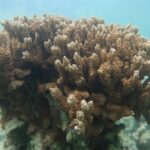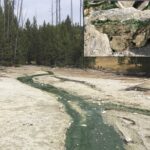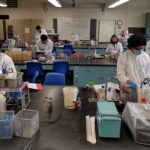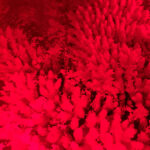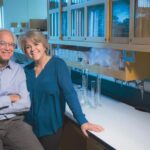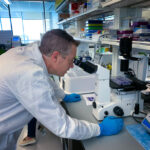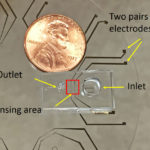“Coral hospital” tool could help safeguard reefs facing climate change Researchers have found a novel way to identify heat-stressed corals, which could help scientists pinpoint the coral species that need protection from warming ocean waters linked to climate change, according to a Rutgers-led study. “This is similar to a blood test to assess human health,” said […]
Biochemistry and Microbiology
In Memoriam: William Ward, Department of Biochemistry and Microbiology
William (Bill) Ward, associate professor in the Department of Biochemistry and Microbiology succumbed to pancreatic cancer on November 3. He had retired from a 42-year career as a professor of biochemistry at Rutgers School of Environmental and Biological Sciences in January 2020. Ward earned his doctorate in biochemistry from Johns Hopkins University and joined the faculty of Rutgers University in 1977. He had an early interest in characterizing […]
How Did Red Algae Survive in Extreme Environments?
Rutgers-led team will study algae from hot springs worldwide, including in Yellowstone National Park. Red algae have persisted in hot springs and surrounding rocks for about 1 billion years. Now, a Rutgers-led team will investigate why these single-celled extremists have thrived in harsh environments – research that could benefit environmental cleanups and the production of […]
SEBS Leads with Number of Undergraduate Students Enrolled in Face-to-Face Instruction During the Pandemic
The School of Environmental and Biological Sciences (SEBS) prides itself on giving students an education beyond the classroom. Living labs such as the Cook Farm, where each type of animal has its own practicum course, and the more familiar-looking laboratories (think petri dishes and pipettes) offer experiential learning outside of a traditional lecture hall. During […]
Bhattacharya Lab Analyzes Genome Sequence of Paulinella, Shedding Light on the Origin of Photosynthesis
Paulinella chromatophora, described in 1895 by the German zoologist Robert Lauterborn, is considered to be one of the first documented cases of endosymbiosis, that is, a “plant-like” cell living inside an “animal-like” cell. Therefore, Paulinella occupies a pivotal position in the endosymbiosis field. However, because this is a rare and difficult to culture single-celled organism, […]
Surprising Coral Spawning Features Revealed
When stony corals have their renowned mass spawning events, in sync with the moon’s cycle, colonies simultaneously release an underwater “cloud” of sperm and eggs for fertilization. But how do the sperm and eggs survive several hours as plankton, given threats from predators, microbes and stresses such as warming waters? A Rutgers-led team has discovered […]
Rutgers-Led “Microbial Noah’s Ark” Should Move to Next Phase, Study Finds
A new study finds that a Rutgers-driven proposal to create a “microbial Noah’s ark” to protect the long-term health of humanity is feasible and should move forward into a pilot project phase. The Microbiota Vault would gather beneficial germs from human populations whose microbiomes are uncompromised by antibiotics, processed diets and other ill effects of […]
SEBS Faculty Sign Open Letter in Science Magazine Opposing U.S. Resumption of Nuclear Weapons Testing
Seventeen Rutgers faculty, including seven from the School of Environmental and Biological Sciences (SEBS), are among 70 leading scientists, including several Nobel Laureates and nuclear disarmament advocates, to sign an open letter in Science that opposes U.S. resumption of nuclear weapons testing. The letter, “Uphold the nuclear weapons test moratorium,” opposes the resumption of nuclear […]
Virologist Christopher Mores (CC’95) Spends His Days ‘Hunting The Thing That Wants To Hunt Us’
As the novel coronavirus continues its global rampage, scientists around the world are racing to stop its spread. Dozens of projects have been launched under great pressure to deliver a vaccine as quickly as possible. Among the virologists trying to unlock the pathogen’s secrets is Christopher Mores, the director of a new lab devoted to […]
Rutgers Develops New Portable Tool to Analyze Microbes in the Environment
Device could be used to find threats to ecosystems Imagine a device that could swiftly analyze microbes in oceans and other aquatic environments, revealing the health of these organisms – too tiny to be seen by the naked eye – and their response to threats to their ecosystems. Rutgers researchers have created just such a […]

